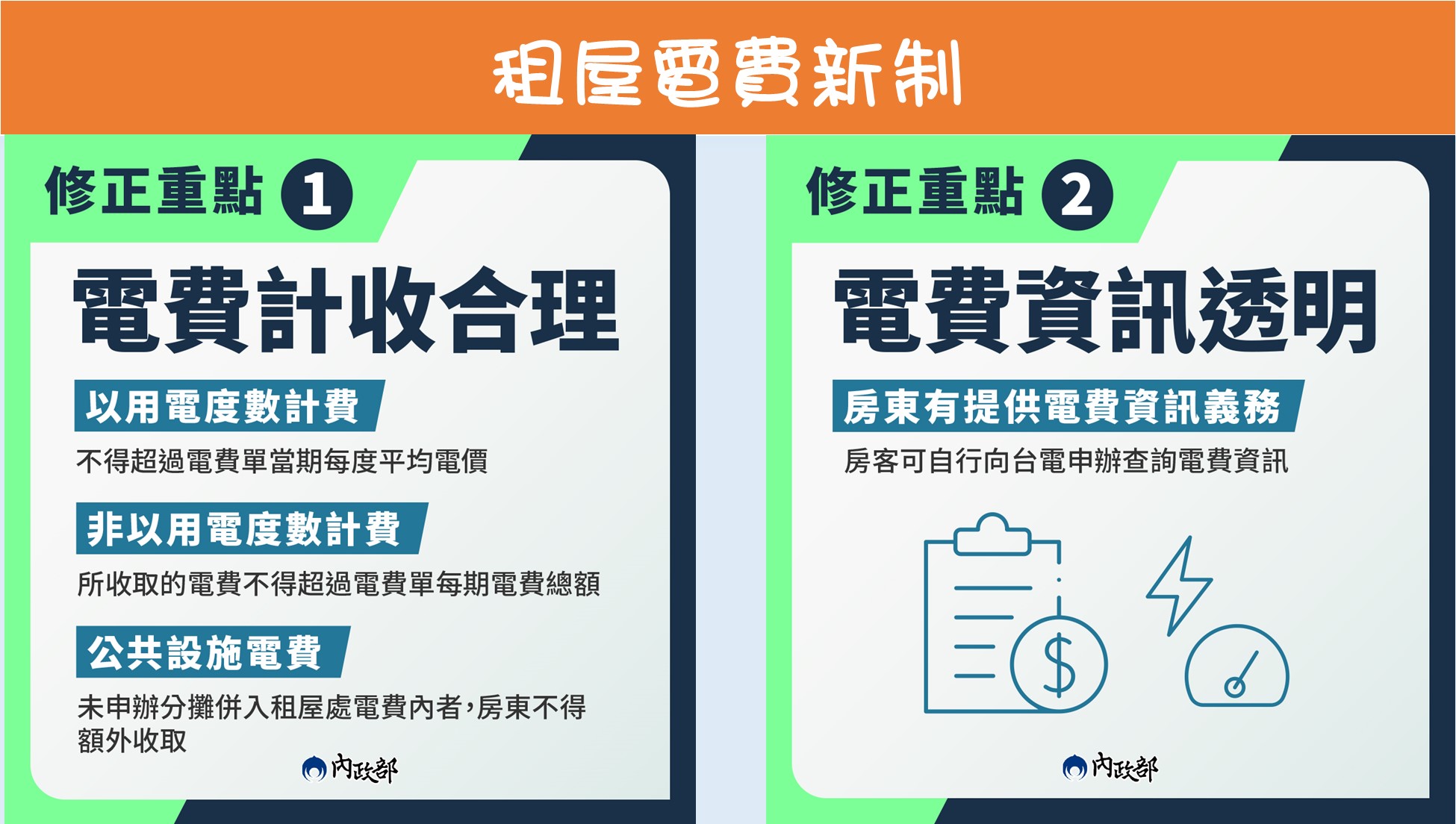On July 14, the Ministry of the Interior announced revisions to the "Residential Lease Standard Contract Clauses," which took effect on July 15. The new regulations apply to newly signed residential lease contracts and do not retroactively apply to old contracts, although the parties can agree to apply the new system.
The main purpose of the new system is to ensure that rental electricity charges are reasonable and fair, reducing disputes. Key points include:
- Electricity Billing Standards: If electricity is billed according to usage, landlords cannot charge more than the current average electricity price per kilowatt-hour as shown on the electricity bill. If electricity is not billed according to usage, the total electricity charge cannot exceed the total amount on the electricity bill. Landlords cannot charge extra for electricity used for outdoor public facilities if these charges are not included in the electricity bill.
Rental Electricity Information: When collecting electricity charges, landlords must provide tenants with the current average electricity price per kilowatt-hour and usage information. Tenants can also apply to Taiwan Power Company (Taipower) to inquire about related electricity charge information. Key Points of the New Rental Electricity Billing System - Reasonable Electricity Charges and Transparent Electricity Information (Photo / Screenshot from Ministry of the Interior website)
Key Points of the New Rental Electricity Billing System - Reasonable Electricity Charges and Transparent Electricity Information (Photo / Screenshot from Ministry of the Interior website)
Excessive Electricity Charges Will Be Heavily Fined, Tenants Can File Complaints
The Ministry of the Interior reminds landlords that after last year's (2023) legal amendments, all residential lease contracts are fully protected by the Consumer Protection Act. If the new regulations are violated by overcharging for electricity, tenants can file complaints with the consumer protection or land administration units of county and city governments. Violators can be fined between NT$30,000 and NT$300,000, and those who refuse to make corrections can be fined an additional NT$50,000 to NT$500,000. Local governments will periodically inspect lease contracts to ensure tenant rights.
Additionally, the Ministry of the Interior has signed a cooperation agreement with the Legal Aid Foundation to expand free rental legal telephone consultations starting in August. If tenants encounter issues such as rent increases, lease terminations, or disguised electricity charges, they can consult the Legal Aid Foundation by phone to understand how to protect their rights.
To address potential issues with the new system, such as how to settle accounts for early lease termination and how to allocate public electricity in shared rental units, the Land Administration Department of the Ministry of the Interior has compiled relevant suggestions for handling these situations. Landlords and tenants can refer to these suggestions. People can visit the "Leasing Regulations Section" on the Land Administration Department's website (URL: https://www.land.moi.gov.tw/chhtml/news/89) to download the new lease contract template, information packages, and FAQs. For further inquiries, they can call the 1996 Ministry of the Interior service hotline or contact local governments.







